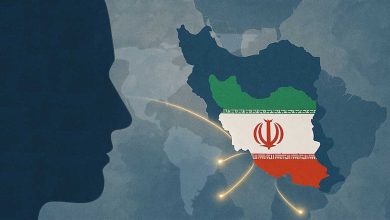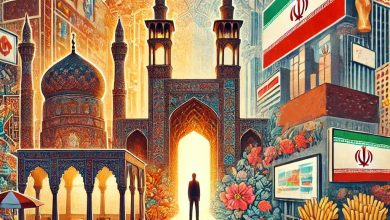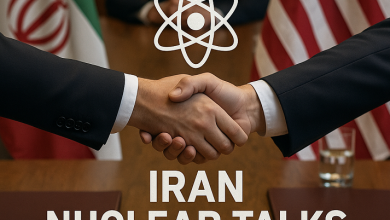The Geopolitical and Security Rivalry Between Iran and Israel in the Region

The rivalry between Iran and Israel is one of the most significant geopolitical axes in the Middle East, shaping not only regional dynamics but also global strategic equations. This competition spans multiple dimensions—military, intelligence, security, and diplomacy. Through the “Axis of Resistance,” which includes Hezbollah in Lebanon, Hamas, Islamic Jihad, and allied groups in Syria and Iraq, Iran exerts constant strategic pressure on Israel. In response, Israel has sought to establish a counterbalance by extending its presence near Iran’s borders, particularly through intelligence and security bases in Azerbaijan.
The Axis of Resistance is a network of armed and political groups aligned with Tehran’s interests. This axis plays a vital role in Iran’s regional balancing strategy against Israel. The presence of Iran-backed forces in Syria, Lebanon, Gaza, and even Iraq enables Iran to maintain an operational footprint close to Israeli territory. Hezbollah, as the most powerful actor within this axis, represents a direct threat to Israel. Likewise, Iran’s support for Hamas and Islamic Jihad in Gaza has forced Israel to manage simultaneous fronts.
In response, Israel has adopted a strategy of increasing its presence in Iran’s neighboring regions, aiming to create a containment ring. One key area is the Republic of Azerbaijan, where Tel Aviv maintains strong ties. Through the sale of advanced weaponry, provision of surveillance technology, and establishment of intelligence outposts, Israel seeks to use Azerbaijani territory as a pressure point against Iran. This mirrors Iran’s own strategy of leveraging the Axis of Resistance to strengthen its proximity to Israeli borders. Additionally, Israel’s expanding ties with Arab Gulf states—particularly through the Abraham Accords with the UAE and Bahrain—signal its intent to form a regional alliance against Iran. These partnerships allow Israel to strengthen its posture near Iran’s southern flank.
Both sides are deeply engaged in proxy and cyber warfare. Israel has carried out numerous cyberattacks on Iranian nuclear facilities—such as the Stuxnet attack on Natanz—while Iran has responded with retaliatory strikes against Israeli infrastructure, extending the conflict into the digital domain.
Support for the Assad regime in Syria has been a central pillar of Tehran’s regional policy. However, the fall of Bashar al-Assad’s government would mark a significant blow to Iran’s regional foothold. In this scenario, Israel would seek to consolidate its dominance in the region by capitalizing on the vacuum left by Iran’s retreat from Syria—a major shift that could fundamentally alter the geopolitical landscape and the Tehran-Tel Aviv rivalry.
The collapse of the Assad regime would sever a critical logistical corridor connecting Iran to Hezbollah in Lebanon, previously facilitated through Iraq and Syria. Simultaneously, the influence of Turkey, Sunni militant factions, and groups opposed to Iran would grow, reshaping the power dynamics in post-Assad Syria. Without a government allied with Iran in Damascus, Hezbollah and other proxy forces would face logistical and financial strain, likely weakening the broader Axis of Resistance.
For Israel, the downfall of Assad would represent a strategic opportunity. The removal of Iranian military presence in Syria would ease the northern threat, granting Israel greater operational freedom along its borders. Moreover, increased Turkish involvement and the potential for greater NATO and U.S. influence in Syria would intensify pressure on Iran, creating favorable conditions for Israel.
While Assad’s fall would be a strategic loss for Iran and a shift in the regional power balance toward Israel, the broader rivalry is expected to continue—albeit in an evolved form. In response, Iran is likely to recalibrate its strategy and intensify its activities in Iraq, Yemen, and Lebanon as alternative theaters of influence.






